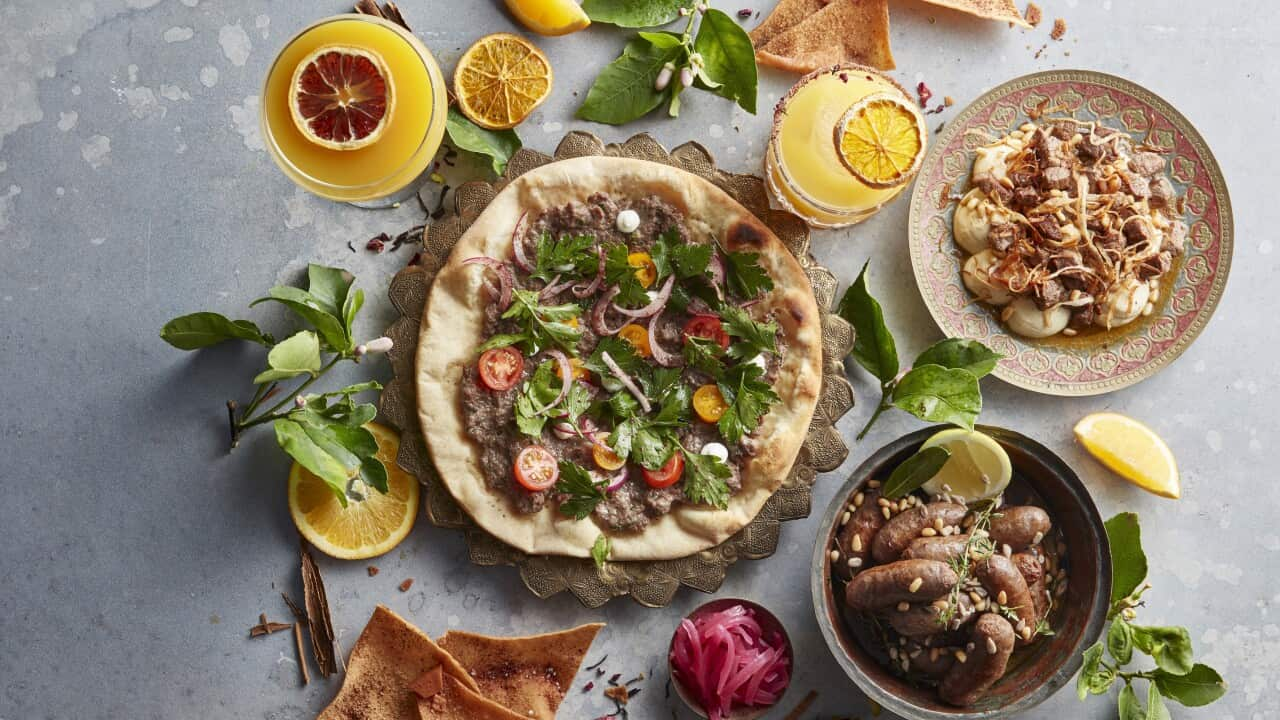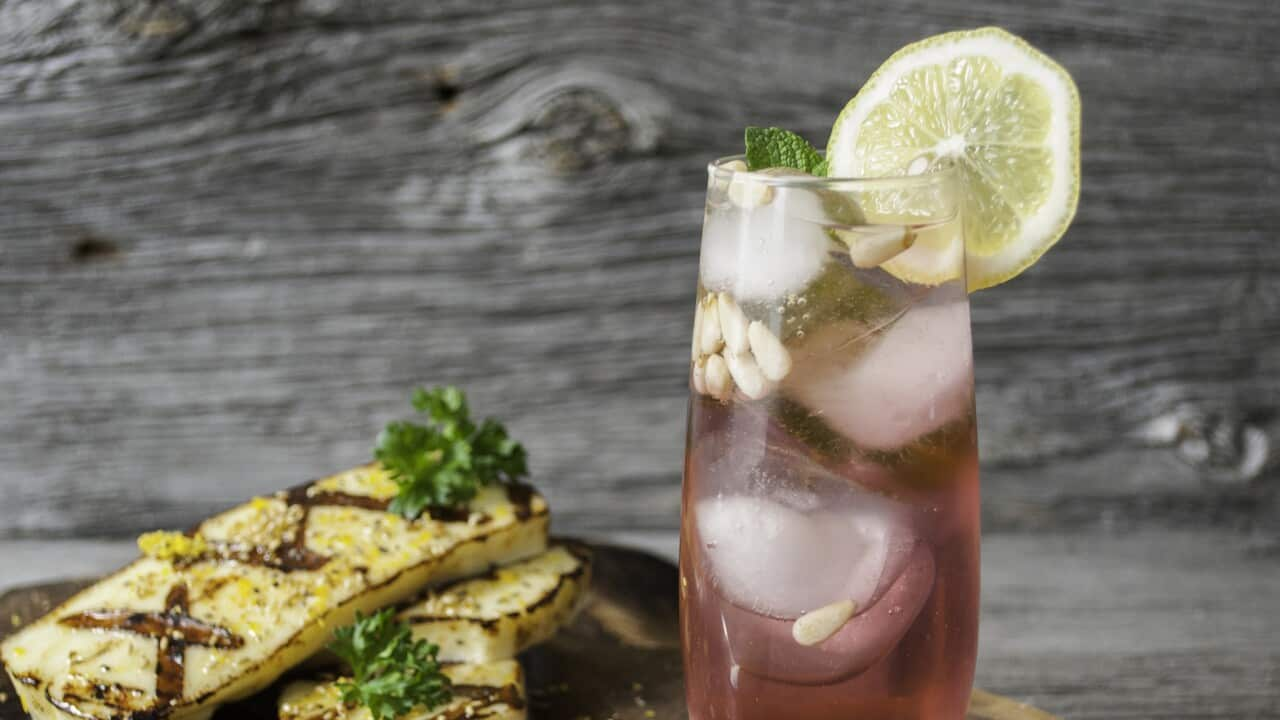When Salwa Rachid reminisces about her childhood in southern Lebanon, village life and the smell of fresh kaak being baked almost always forms part of her memories. Her mother used to bake different variations of bread – including kaak – daily, and Salwa never tired of eating it. It's no surprise, then, that she learnt how to make it herself fairly early on. "I was baking by the time I was 13," she laughs. "And since that day I've never stopped."
Many cultures have their own version of kaak. In the US, there are bagels thanks to the Polish Jews, in Turkey, people love theirsimits, and in Russia, a similar-style of bread is called a bublik. Although cooking methods and presentation vary, the similarity is that the staple bakery item has a hole at its centre.
TRADITIONAL KAAK

Sesame kaak
In Beirut, kaak vendors can be found on almost every street corner, some standing in the same spot day in and day out, and others using bikes or motorbikes to transport their fresh-baked staples. The kaak, like always, is hung using strings hooked through the holes. In smaller villages, like in the village of Aita Al Jabal where Salwa was born, both sweet and savoury kaaks are still made by hand using only local ingredients. "Every region in Lebanon has their own style of kaak," Salwa explains.
Salwa left Lebanon for Australia when she was 28, and naturally fell into baking and cooking jobs soon after she arrived. She held positions in various kitchens around Sydney and continued working for others until only just a couple of years ago, when her children, Hussein (Huss) Rachid and Amani Rachid proposed their idea of a family-run café – with Salwa's kaak as the focus.
We want people to take a bit of Lebanon home with them.
It was easy for Salwa to agree to the idea. Salwa had always believed in her kids and in her own ability to bake, but wasn’t able to take the step without the full support of the family. Huss left his job in the medical science sector and Amani left her job as a teacher.
opened in January 2018 - Rockdale's Lebanese bakery café – and Sydney's (and quite possibly Australia's) first café serving kaak sandwiches. Nineteen43 is open seven days a week and every day at the café is busy. Although brunch enthusiasts spill out onto the streets in the mornings (Huss explains that the brunch menu items – all Lebanese inspired – are there specifically for Sydney’s brunch-crazy crowd), Salwa's kaak has been the focus from day one. Huss explains that it has always been the main reason people come to their café. "It's all about mum's kaak,” he says. "We sell, on average, about 250 kaaks a day."
Nineteen43 is open seven days a week and every day at the café is busy. Although brunch enthusiasts spill out onto the streets in the mornings (Huss explains that the brunch menu items – all Lebanese inspired – are there specifically for Sydney’s brunch-crazy crowd), Salwa's kaak has been the focus from day one. Huss explains that it has always been the main reason people come to their café. "It's all about mum's kaak,” he says. "We sell, on average, about 250 kaaks a day."

This kaak is based on a traditional recipe. Source: Cre.me
Only Salwa, Huss and their business partner Sal Senan know the exact recipe, and Salwa is determined to keep it this way. She does, however, reveal that leaving the dough to sit for at least 24 hours is one of the key components. On the days Salwa doesn't work, Huss and Sal prepare the dough.
The kaak at Nineteen 43 is based on a traditional recipe, however, some parts of the process have been tweaked. The dough preparation method is the same, but instead of a traditional stone-based oven, they use a commercial conveyor oven here. Also, typically only white sesame seeds are sprinkled on the dough before baking, but the kaak at Nineteen43 features a mix of both black and white sesame seeds. "I thought it would add some depth to the appearance," Amani explains. The biggest difference, however, is that it's all about kaak sandwiches. Whereas in Lebanon, kaak is usually eaten plain (or sometimes in simple sandwich form; a cream cheese and sumac filling, with the sandwich finished over charcoal is common in Beirut), the kaak sandwiches at Nineteen43 are crafted to suit the city crowd. "Our goal from the very start has been to make kaak accessible to Sydney-siders," Huss explains. "So, we decided to offer three sandwich options, but they are not exactly your typical traditional Lebanese offerings."
The biggest difference, however, is that it's all about kaak sandwiches. Whereas in Lebanon, kaak is usually eaten plain (or sometimes in simple sandwich form; a cream cheese and sumac filling, with the sandwich finished over charcoal is common in Beirut), the kaak sandwiches at Nineteen43 are crafted to suit the city crowd. "Our goal from the very start has been to make kaak accessible to Sydney-siders," Huss explains. "So, we decided to offer three sandwich options, but they are not exactly your typical traditional Lebanese offerings."

Nineteen43 was opened to high acclaim in January 2018. Source: Cre.me
When Huss and Amani were kids, Salwa used to make them zataar, haloumi, olive and cheese sandwiches. Huss loves avocadoes, so that evolved into one of the Nineteen43 options. Sujuk and egg sandwiches are a Lebanese staple, so that seemed like a logical second menu choice. And cheese sandwiches are synonymous with many cultures, including Lebanese culture. The cheese kaak at Nineteen43, however, is a four-cheese blend. "We could have gone for a basic cream cheese spread, like they do in Lebanon," Huss explains. "But we wanted to give people a bit of substance."
To make the kaak sandwiches easier to eat, they decided to scrap the traditional hole in the middle too. "Nobody wants their Kaak sandwich missing a piece," Huss laughs.
It's been over two years since the Rachid family opened Nineteen43 and no one is showing any signs of slowing down. The COVID-19 lockdown restrictions earlier in the year were a challenge, but as kaak is a great takeaway food the transition to takeaway-only during the lockdown period was made a little easier.
Salwa, Huss, Amani and Sal are also thinking about starting an in-store retail line soon, with plain kaak – as well as other Lebanese baked goods – available for people to purchase. "We want people to take a bit of Lebanon home with them," Salwa says.
NOTES ON LEBANESE FOOD

Beyond baklava: 9 other Lebanese desserts to cosy up to






